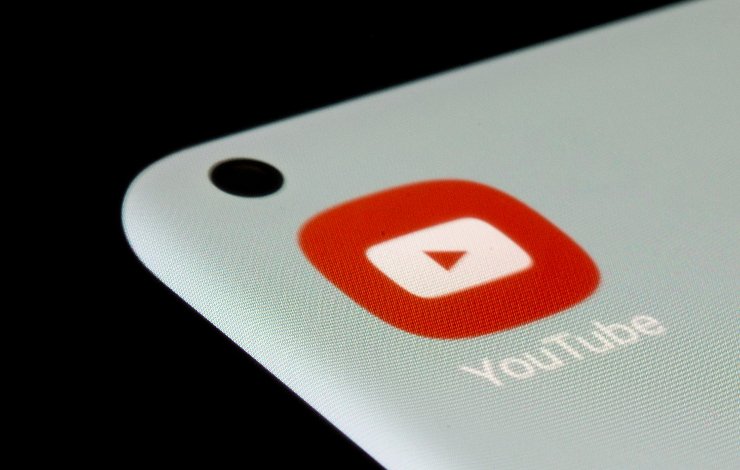YouTube service was once again disrupted across Pakistan on Tuesday evening before the public address of Pakistan Tehreek-e-Insaf (PTI) Chairman and former prime minister Imran Khan in Peshawar.
The YouTube service disruption was confirmed by the organisation tracking internet outages, NetBlocks, “Confirmed: Metrics corroborate reports of a new disruption to YouTube in #Pakistan; the incident comes as former PM Imran Khan appears on screen to live stream a speech on the platform, following a pattern observed in August #PeshawarJalsa”
⚠️ Confirmed: Metrics corroborate reports of a new disruption to YouTube in #Pakistan; the incident comes as former PM Imran Khan appears on screen to live stream a speech on the platform, following a pattern observed in August #PeshawarJalsa
📰 Report: https://t.co/mFBehYjlnY pic.twitter.com/4xawM6rTRy
— NetBlocks (@netblocks) September 6, 2022
It came after the Islamabad High Court’s (IHC) ruling against the Pakistan Electronic Media Regulatory Authority’s ban on Imran Khan’s live speeches.
In another tweet, NetBlocks said, “Update: Metrics confirm that YouTube is disrupted on multiple internet providers in #Pakistan as former Prime Minister Imran Khan live streams; the restrictions come despite the lifting of PEMRA’s ban on Khan’s speeches by the Islamabad High Court”
⚠️ Update: Metrics confirm that YouTube is disrupted on multiple internet providers in #Pakistan as former Prime Minister Imran Khan live streams; the restrictions come despite the lifting of PEMRA’s ban on Khan’s speeches by the Islamabad High Court
📉 https://t.co/mFBehYjlnY pic.twitter.com/uYnGwbNG6M
— NetBlocks (@netblocks) September 6, 2022
A number of social media users had reported disruption in the YouTube service, whereas, the PTI leaders blamed the coalition government for disrupting the video streaming of Imran Khan’s live speech in Peshawar.
Digital rights advocate Usama Khilji condemned the outage, “Enough is enough. @PTAofficialpk you cannot block YouTube for all of Pakistan each time Imran Khan is addressing a rally. This is unconstitutional censorship which has no basis under law. Stop making a joke of the Constitution & treating the country like a video game. #YouTubeDOWN”
Enough is enough @PTAofficialpk you cannot block YouTube for all of Pakistan each time Imran Khan is addressing a rally. This is unconstitutional censorship which has no basis under law. Stop making a joke of the Constitution & treating the country like a video game. #YouTubeDOWN
— Usama Khilji (@UsamaKhilji) September 6, 2022
In another tweet, Khilji wrote, “Welcome to digital martial law in Pakistan, where @YouTube gets blocked each time a person that the establishment doesn’t like is speaking & their speech is live-streamed. This is unacceptable paternalistic censorship that undermines constitutional rights #YouTubeDOWN #keepiton”
Welcome to digital martial law in Pakistan, where @YouTube gets blocked each time a person that the establishment doesn’t like is speaking & their speech is live-streamed.
This is unacceptable paternalistic censorship that undermines constitutional rights #YouTubeDOWN #keepiton
— Usama Khilji (@UsamaKhilji) September 6, 2022
Following the development, the netizens lodged their protest online as #YouTubeDOWN emerged as one of the top trends on Twitter.
The first YouTube outage was reported on August 21 when Khan was addressing a public meeting in Rawalpindi’s Liaquat Bagh. NetBlocks had confirmed that disruption.
Analysts said that the coalition government has apparently admitted that censorship on conventional media platforms like print and broadcast media was not enough but banning digital content on social media was also necessary to control the popularity of prominent figures.
They added that the government has seemingly accepted the superiority of digital media and agreed that YouTube and other social media platforms have become more powerful that needed to be censored to stop the public reach of the political rivals through social media blackouts.
The analysts said that the YouTube outages confirmed the intention of the incumbent government after the video streaming platform was blocked across Pakistan for the second time and authorities’ admissibility of the fact that digital media platforms became so powerful in Pakistan that they needed to be controlled to stop the political rivals from spreading its narratives.

